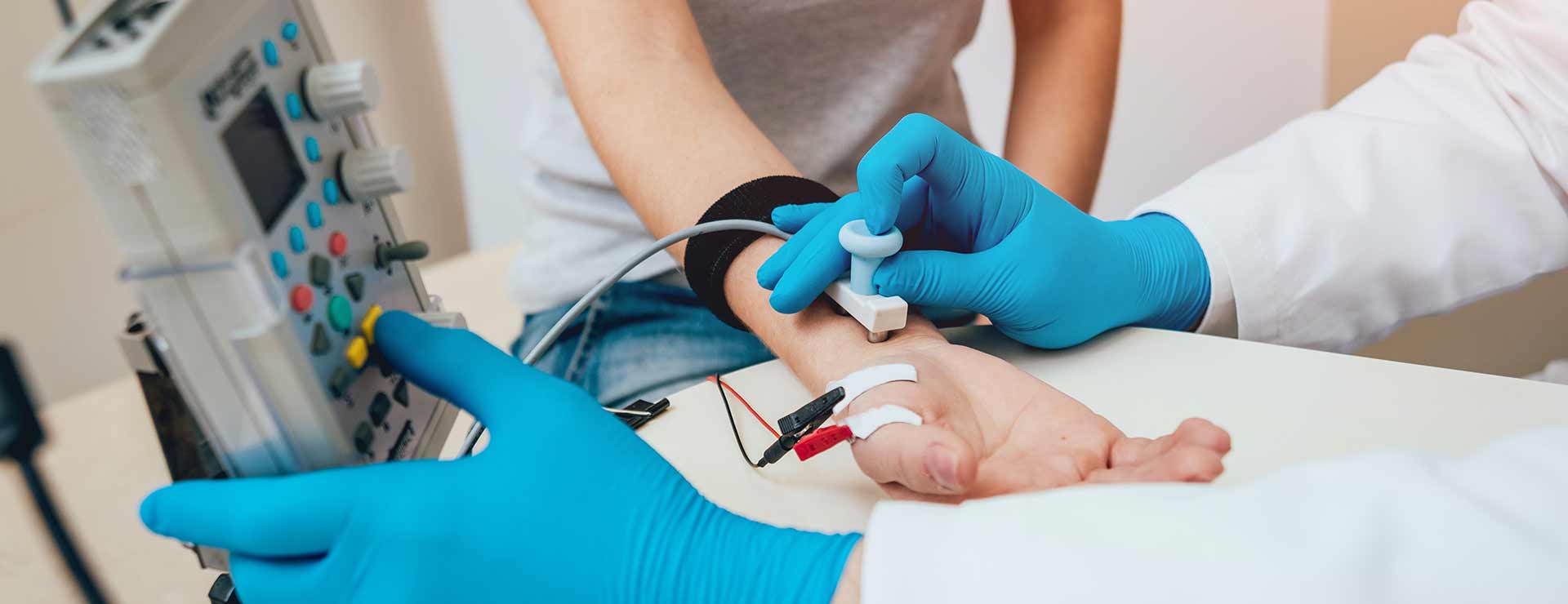Medical Electophysiology Glossary
Electrophysiology Glossary
Hi, my name is Laurie Jayne and I have been studying in Medical Electrophysiology for 2 years now. This glossary will contain 20 words that technologist in Medical Electrophysiology use in the context of their work. These words will help people who want to understand their vocabulary and those who may be interested in this program and want to study it. This glossary will include definition, images, examples, translations, pronunciations, and quiz. I found the words in some Wikipedia text and in some books that I am actually using at school and I decided to use different online dictionaries to define them.
- electrode
- noun
- A conductor through which electricity enters or leaves an object, substance, or region.
- Example: The electrode should attach to the scalp to record any brain activity.
- fr: Électrode
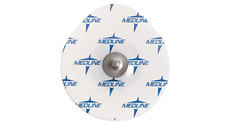
- pacemaker
- noun
- A pacemaker is a small device that's placed under the skin in your chest to help control your heartbeat. It's used to help your heart beat more regularly if you have an irregular heartbeat (arrhythmia), particularly a slow one. Implanting a pacemaker in your chest requires a surgical procedure.
- Example: She was fitted with a pacemaker after suffering serious heart trouble.
- fr: Stimulateur cardiaque

- electrocardiogram
- noun
- An electrocardiogram (ECG or EKG) records the electrical signal from your heart to check for different heart conditions. Electrodes are placed on your chest to record your heart's electrical signals, which cause your heart to beat.
- Example: An electrocardiogram will typically be done to check for heart muscle damage.
- fr: Électrocardiogramme
/1745304_color-5ba17840c9e77c00577efa25.png)
- electroencephalography
- noun
- An electroencephalogram (EEG) is a test that detects electrical activity in your brain using small, electrodes attached to your scalp. Your brain cells communicate via electrical impulses and are active all the time, even when you're asleep. This activity shows up as wavy lines on an EEG recording.
- Example: These can be measured by electroencephalography ( EEG ) , using electrodes placed on the scalp.
- fr: Électroencéphalographie

- electromyography
- noun
- Electromyography (EMG) is a diagnostic procedure to assess the health of muscles and the nerve cells that control them (motor neurons).
- Example: The electrical activity associated with muscle contraction are measured via electromyography
- fr: Électromyographie
- electronystagmography
- noun
- Electronystagmography (ENG or electrooculography) is used to evaluate people with vertigo (a false sense of spinning or motion that can cause dizziness) and certain other disorders that affect hearing and vision. Electrodes are placed at locations above and below the eye to record electrical activity.
- Example: To analyze the causes and features of electronystagmography (ENG) in middle and elder aged vertigo patients.
- fr: Électronystagmographie

- polysomnography
- noun
- Polysomnography, also called a sleep study, is a comprehensive test used to diagnose sleep disorders.
- Example: These studies include a polysomnography (PSG), which is electronically-administered.
- fr: Polysomnographie
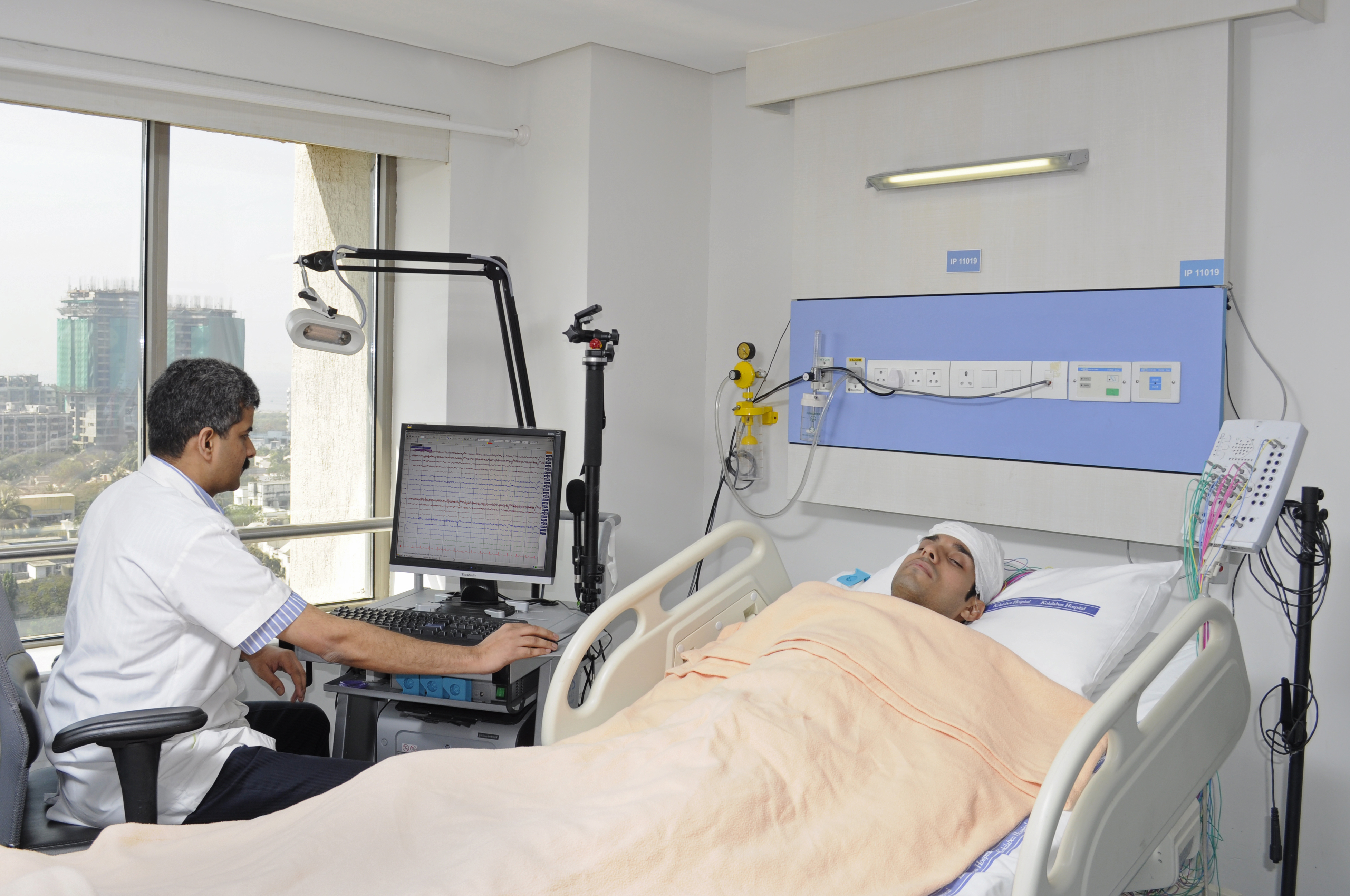
- electrophysiology
- noun
- Electrophysiology is the branch of neuroscience that explores the electrical activity of living neurons and investigates the molecular and cellular processes that govern their signaling.
- Example: Electrophysiology of the heart.
- fr: Électrophysiologie
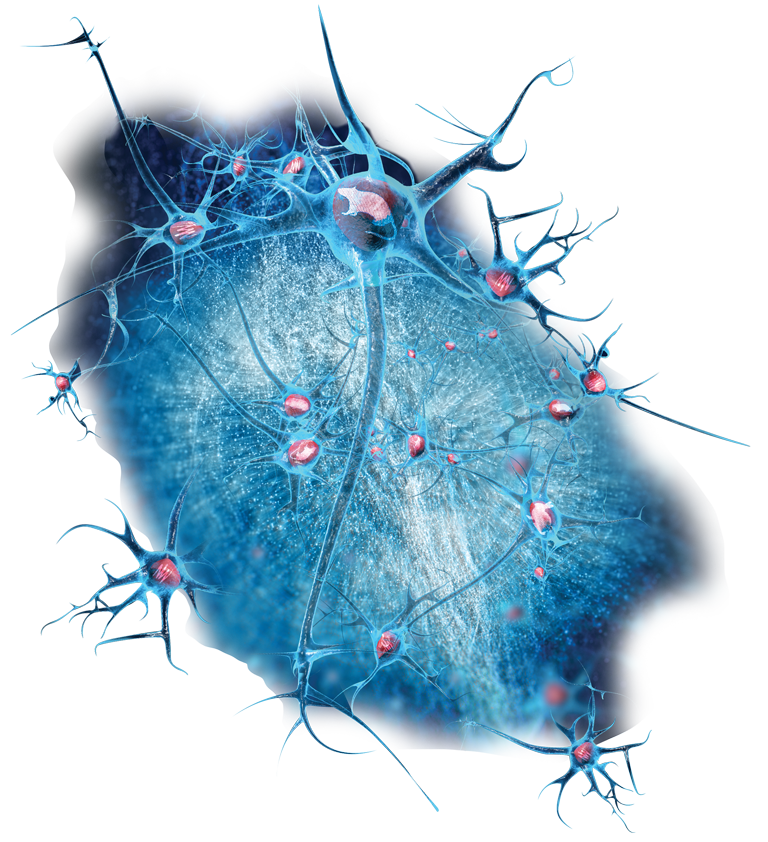
- arrhythmia
- noun
- An arrhythmia is a problem with the rate or rhythm of your heartbeat. It means that your heart beats too quickly, too slowly, or with an irregular pattern. When the heart beats faster than normal, it is called tachycardia. When the heart beats too slowly, it is called bradycardia.
- Example: Your weakened heart will then develop an arrhythmia and eventually fail.
- fr: Arythmie
- myopathy
- noun
- Myopathy is a general term referring to any disease that affects the muscles that control voluntary movement in the body. Patients experience muscle weakness due to a dysfunction of the muscle fibers.
- Example: The most serious form of myopathy is called rhabdomyolysis.
- fr: Myopathie

- neurological
- adjective
- Relating to the anatomy, functions, and organic disorders of nerves and the nervous system.
- Example: It's a lifelong neurological impairment that affects the ability to speak, play or socially interact.
- fr: Neurologique
- pathophysiology
- noun
- The disordered physiological processes associated with disease or injury.
- cardiology
- noun
- The branch of medicine that deals with diseases and abnormalities of the heart.
- Example: He's now in the cardiology unit.
- fr: cardiologie

- hyperventilate
- verb
- Breathe at an abnormally rapid rate, so increasing the rate of loss of carbon dioxide.
- Example: She started to hyperventilate under stress
- fr: hyperventilate

- patient
- A person receiving or registered to receive medical treatment
- Example: Many patients in the hospital were more ill than she was
- fr: patient
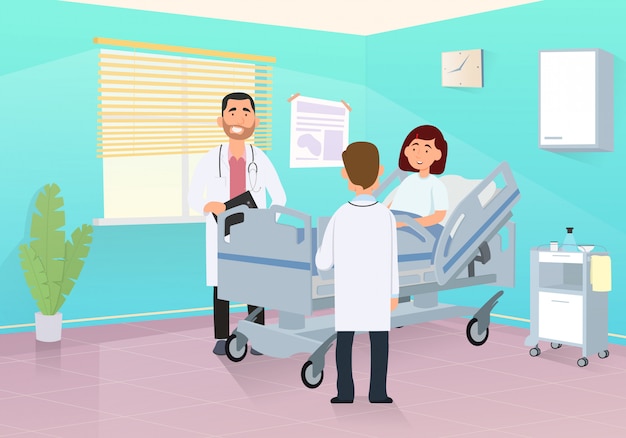
- technologist
- noun
- An expert in a particular field of technology.
- Example: A technologist in Electrophysiology.
- fr: technologue

- hypertension
- noun
- Hypertension, also known as high or raised blood pressure, is a condition in which the blood vessels have persistently raised pressure.
- Example: He's being treated for hypertension.
- fr: hypertension
- bioelectric
- adjective
- Relating to electricity or electrical phenomena produced within living organisms.
- Example: Bioelectric field of the body.
- fr: bioélectrique
- chest
- noun
- The front surface of a person's or animal's body between the neck and the abdomen.
- Example: The electrodes will be on your chest.
- fr: poitrine

- alcohol
- noun
- It's an organic compound whose molecule contains one or more hydroxide groups attached to a carbon atom. Alcohols, in various forms, are used within medicine as an antiseptic, disinfectant, and antidote. Alcohols applied to the skin are used to disinfect skin before a needle and before surgery. They may be used both to disinfect the skin of the person and the hands of the healthcare providers.
- Example: I'm going to use alcohol to disinfect your skin so the electrodes can stick more.
- fr: alcool
